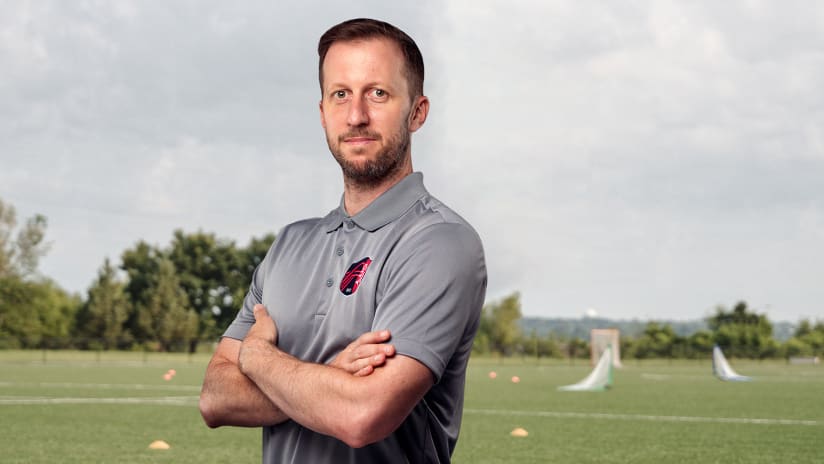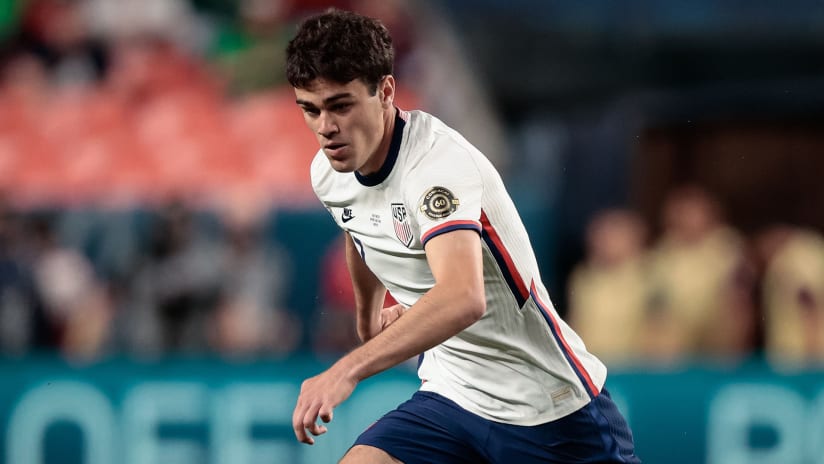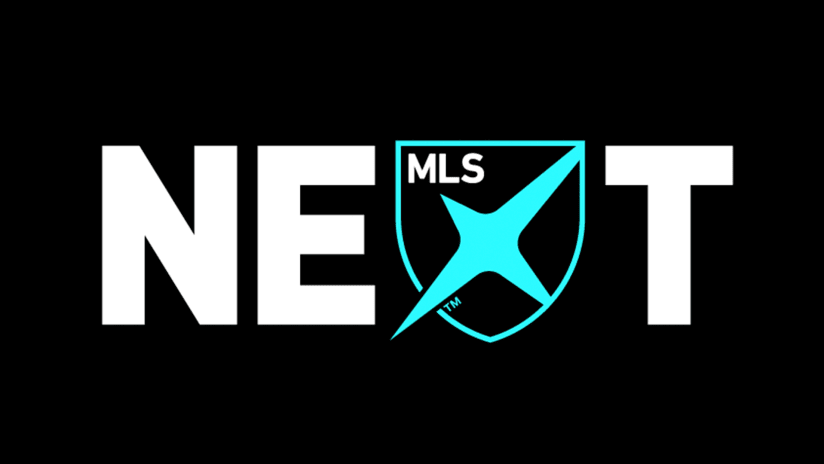MONTREAL – The Montreal Impact’s training session is over. While the players stretch and banter among themselves, a coach silently taps away on his iPad, uploading and analyzing the information he's gathered that day.
As the first player gets up and heads toward to the locker room, the coach hurries to catch up, iPad in hand. But he’s already clicked it shut. This is not a tactical lesson. Antoine Guldner just wants to talk, find out how things are going.
Guldner is Montreal's mental coach, vital to the Impact’s mission to measure and impact more than their players' physical output.
Top-level athletes have accepted mental preparation as a valuable tool. Montreal have embraced it. Guldner, a full-time member of the Impact coaching staff, divides his time between the first team, which is always looking for an edge up in MLS, and the Impact's academy, where the idea originated.
“Now, in sports psychology, we understand the common traits of top-level players,” Guldner tells MLSsoccer.com. “An important balance must be struck between self-confidence – being able to assert oneself – and remaining humble enough to keep working and questioning oneself. It’s tricky for young players, but they can learn.
“Another is the balance between displaying the intensity, the aggression required to play at the top level, and remaining respectful, managing your emotions,” he continues. “These are the type of things I try to develop in the youth setup.”
Guldner joined the club in 2011 as a U-13 coach – a job he passed on to a colleague in July 2014 when he became the academy's dedicated mental coach. When Mauro Biello replaced Frank Klopas as first-team head coach in August 2015, he invited Guldner to take on more responsibilities with the MLS squad. Guldner is now the mental coach for every Impact team, an example of the top-to-bottom continuity – all of Biello’s assistants worked in the academy at some point – that forms the foundation of the club.
While the rest of the staff provides the day-to-day tactical and technical training, Guldner offers, with the benefit of hindsight, a second opinion. He reinforces the positive messages and the efficient methods the staff is attempting to impart on the squad. Young players are taught that amid soccer’s intangibles exist things that they can control, things they should focus on to remain mentally strong and consistent.
That includes moving on from mistakes, admitting that the referee won’t cave in under pressure and making sure their focus remains on the here and now. Benefits from this approach are reflected in the Impact’s performance in United States Soccer Development Academy play, Guldner says. Their U-16 and U-18 teams made the playoffs two years after joining the USSDA in 2014. The U-18s finished fourth in the 2015 playoffs. Both squads had the confidence required to go into uncharted territory and reach objectives.

By instilling clear principles of play, roles and responsibilities in their players, the entire technical staff fosters the development of stress-management and emotion-management abilities. Mental strength is a byproduct of players' belief in the system and their role therein.
“We need the player’s feedback,” Guldner says. “By working on the players’ capacity to react when the ball is lost, we stay permanently connected with the game. We don’t see that loss of concentration, that disconnect with what’s going on. They’re acting, straightaway … Those are things that speak to coaches, to fitness coaches and to players, things they can apply.”
The methods change somewhat with the first team. Either the professionals have always intuitively shown these qualities, or they’ve picked them up on their way to the top. The club’s idea is for a staff member with a different background to offer another perspective based on sports psychology. Players know how to perform, but mental coaching helps them handle workload and stress. It reminds them of what’s important. The goal is to put emphasis on efficient actions, so that players keep doing them naturally.
However, hiring a full-time mental coach, working with players from the academy to the first team, is still an oddity in soccer circles, Guldner believes. The trade has evolved in the last decade, but it remains a relatively new concept.
A professional player in France, Guldner’s got his education in sports teaching, mental preparation and sports performance coaching at Université de Montpellier-1. The program was born when a former athlete-turned-psychologist decided training psychologists to work in pro sports wasn’t the way to go. Rather, athletes should be trained to work in sports psychology, bringing with them a better understanding of sporting reality.
Impact midfielder Jérémy Gagnon-Laparé, who has worked with Guldner in both the academy and with the senior team, says it sounds simple but can open up players' minds when it come to why they perform well in certain scenarios and how to replicate them.
“At the end of training, he comes to see you, asks you if everything’s fine,” Gagnon-Laparé says. “You tell him you’ve had a good session, and we talk about it, wonder why it went well. Simple things, simple analyses. He may have noticed simple things that you do before training, some solo technical work that put you in the mood.”
The aim, says Guldner, is that mood, that mindset will ultimately translate on to the field and into results.













